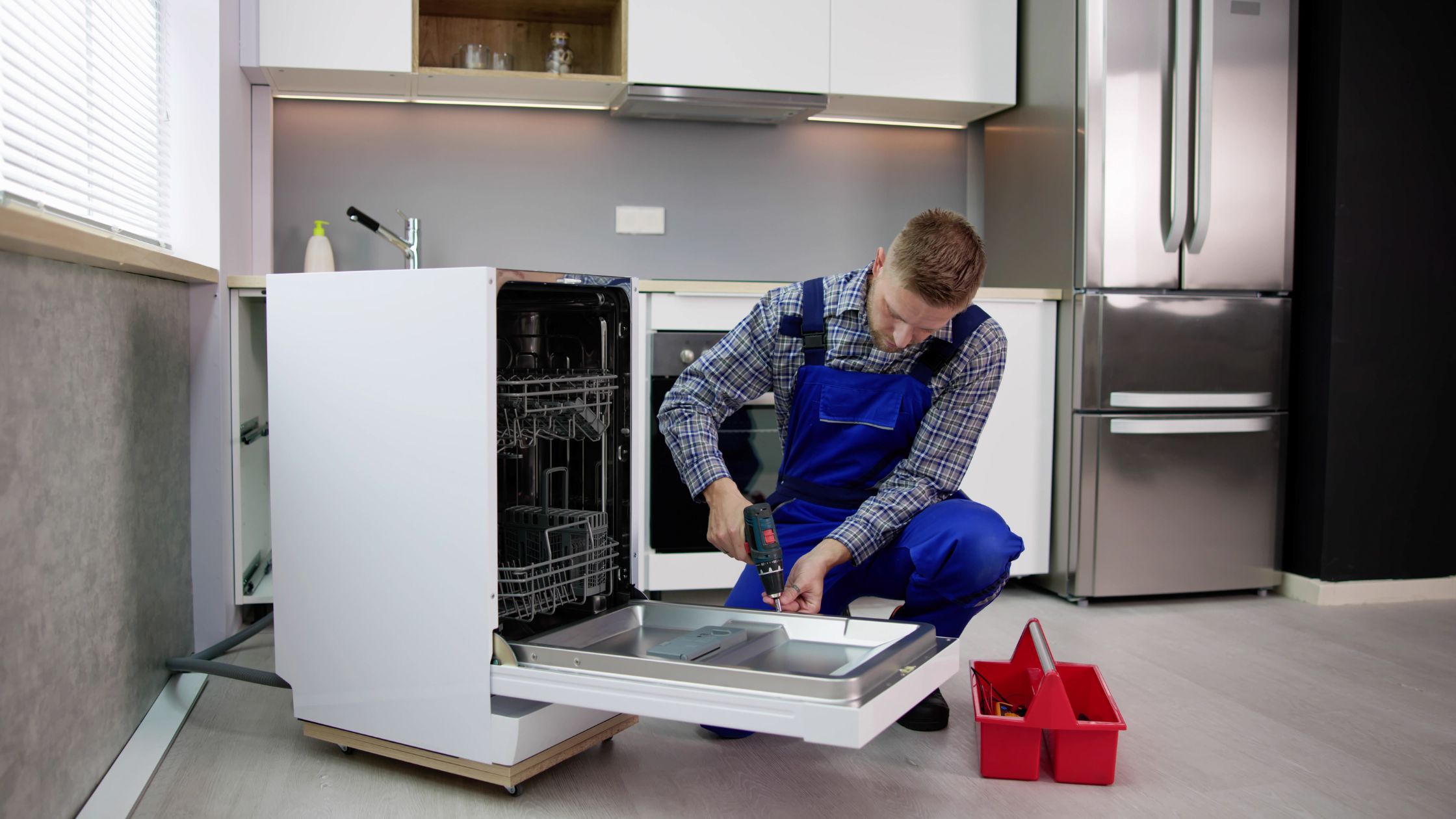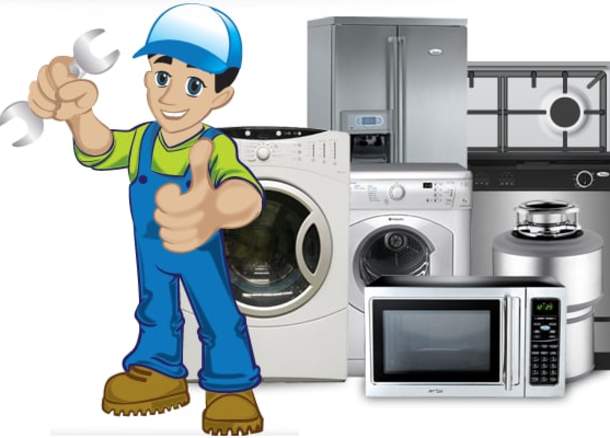The Ultimate Guide to Understanding Device Repair Service at Home
When your fridge stops cooling down or your stove rejects to warmth, it can feel overwhelming. Recognizing home appliance repair service in your home can conserve you time and cash. You'll learn to recognize signs, utilize vital devices, and follow a methodical troubleshooting process. Prior to you start, there are critical safety precautions you need to take into account. What are the most usual troubles, and just how can you fix them? Allow's check out the basics.
Typical Home Appliance Issues and Their Signs
When your devices begin breaking down, it's vital to recognize the indicators beforehand. Overlooking them can cause larger issues and costly fixings. If your fridge isn't cooling down properly, you may discover cozy places or condensation developing. This could show a falling short compressor or an obstructed vent.Your dishwashing machine may reveal problems through dirty meals or uncommon noises during cycles. If you listen to grinding or clanking, it's time to investigate.A cleaning maker that will not rotate or drain can leave you with soaked laundry, suggesting a stopped up drain or a malfunctioning pump.Lastly, if your oven's temperature seems off or it takes permanently to pre-heat, you could be taking care of a defective thermostat. By staying sharp to these signs, you can attend to problems before they rise right into significant repair services.
Necessary Tools for Appliance Repair
When you're taking on home appliance repairs at home, having the right devices is vital. Fundamental hand devices like screwdrivers and pliers will certainly assist you disassemble and repair different devices, while electrical screening tools assure you're functioning safely with electrical wiring. Allow's look at what you require to get going on your repair work journey.
Standard Hand Devices
Having the right tools is necessary for efficient appliance repair work in your home. Begin with a reputable screwdriver set, including both flathead and Phillips kinds, as screws prevail in home appliance setting up. Pliers are likewise vital; they assist with gripping, turning, and reducing cables or small elements. A set of needle-nose pliers can get to limited areas conveniently. You'll require a good adjustable wrench for tightening or loosening nuts and bolts. An utility blade comes in handy for puncturing packaging or insulation. Don't neglect a strong workbench or surface area to securely organize your tools and components. With these basic hand devices, you'll be well-prepared to deal with most home appliance repairs that come your means.
Electric Screening Tools
Alongside basic hand devices, electrical screening devices play a crucial role in device repair work. These devices aid you detect electrical concerns and guarantee devices work securely. A multimeter is important; it gauges voltage, current, and resistance, allowing you to determine issues swiftly. A non-contact voltage tester is one more essential, letting you discover real-time wires without making straight contact, boosting your safety. Clamp meters are terrific for determining present flow in cables without detaching them, saving you time and effort. Furthermore, circuit testers can swiftly examine if outlets are working appropriately. By using these gadgets, you'll streamline your troubleshooting process and enhance your repair service skills, making home appliance maintenance a great deal simpler.
Step-by-Step Guide to Diagnosing Appliance Issues
When your appliance acts up, it can be aggravating, yet detecting the concern does not need to be frustrating. You'll discover to determine typical issues and use efficient repairing strategies. Allow's go through the steps to obtain your device back in working order.
Typical Home Appliance Issues

Fixing Techniques Described

Repairing Major Kitchen Devices: A Closer Look
Have you ever questioned just how to deal with common concerns with your kitchen area appliances? Fixing significant cooking area appliances like fridges, ovens, and dish washers can be less complicated than you think. Begin by recognizing the problem-- whether it's a fridge not cooling down or an oven that will not warm. Usually, a straightforward reset or checking the source of power can resolve the issue.For refrigerators, clean the condenser coils and inspect the door seals. If your stove's not heating, check the burner and thermostat. Dishwashers might just require a tidy filter or a reset to get them back in activity. Constantly disconnect the device prior to diving right into repairs to ensure your safety.Don' t fail to remember to consult the customer guidebook for specific fixing tips connected to your model. With a little patience and the right tools, you can with confidence tackle appliance fixings and conserve cash at the same time!

Fixing Washing Appliances: Tips and Techniques
When your laundry devices start acting up, it can feel overwhelming, but repairing them doesn't need to be a hassle. Start by inspecting the power supply. Verify the device is connected in and the electrical outlet is working. Next off, evaluate the door or cover switch; a malfunctioning switch can stop the equipment from operating.For washers, if it's not spinning, look for out of balance tons. Rearranging the clothes could resolve the issue. If your dryer isn't home heating, clean the lint filter and inspect the air vent for blockages.Listen for uncommon noises; they can suggest a trouble. If your home appliance is leaking, inspect the tubes for fractures or loose connections. Document any type of mistake codes displayed on digital screens, as they can guide you in identifying the issue. Seek advice from the user guidebook for details troubleshooting suggestions connected to your version.
Safety And Security Precautions to Take Throughout Fixes
Before you start any kind of home appliance fixings, it's important to focus on security to avoid crashes or injuries. Initially, unplug the appliance or shut read more off the circuit breaker to ensure no power reaches it while you work. Usage protected devices to minimize the danger of electrical shock. Wear safety goggles and gloves to protect on your own from sharp sides or debris (Dependable Refrigeration & Appliance Repair Service Washing Machine Repair).Make particular your workspace is tidy and well-lit, so you can see what you're doing. Keep kids and pets far from the location to stay clear of distractions and prospective hazards. If you're dealing with gas home appliances, be additional mindful; look for leakages before proceeding.Take your time, and do not rush with repair services. If you feel unpredictable about any kind of action, it's far better to stop briefly and research study than to guess. Adhering to these preventative measures will help create a more secure atmosphere for your DIY device fixing job
When to Call an Expert for Help
Just how do you recognize if it's time to employ an expert for appliance repairs? If you have actually attempted basic troubleshooting without success, it's a clear indication. For example, if your appliance still won't begin or reveals unusual noises after resetting it, don't wait to look for specialist help.When you notice leakages, smoke, or shedding smells, prioritize security and call a pro immediately. These issues can cause more substantial damage or posture risks to your home.Also, if your appliance is under warranty, getting in touch with a professional is frequently the most effective route. They can guarantee that repairs will not nullify your guarantee, saving you money in the lengthy run.Finally, if you're unclear or unpleasant with complicated repair work, it's important to leave it to the professionals. Bear in mind, taking on difficult concerns without the right expertise can result in expensive mistakes. Count on an expert when doubtful!
Frequently Asked Questions
Exactly How Can I Avoid Device Troubles in the Future?
To prevent appliance troubles in the future, you need to execute normal upkeep, check for wear and tear, tidy filters, and avoid overloading. Staying positive will certainly help expand their life expectancy and maintain them running efficiently.
What Are one of the most Usual Do It Yourself Device Repair Mistakes?
You may overlook safety precautions, miss troubleshooting actions, or utilize inaccurate tools when trying DIY home appliance repair work. Hurrying the procedure or disregarding supplier standards can lead to more significant problems and expensive blunders. Keep patient and informed!
Exactly how Do I Know if a Component Needs Substitute?
You can inform if a part needs replacement by checking for uncommon noises, leakages, or inconsistent efficiency. If the appliance battles to operate appropriately or shows visible damage, it's likely time for a substitute.
Can I Utilize Generic Components for Device Fixes?
Yes, you can use common components for home appliance repair work, but ascertain they're compatible - Kenmore Dryer Repair Oro Valley Dependable Refrigeration & Appliance Repair Service. Generic components might conserve you money, yet they could impact performance or longevity, so consider your options thoroughly before deciding
What Service Warranties Cover Device Fixes?
A lot of appliance warranties cover repair services for making defects, but they often exclude damages from misuse. Inspect your service warranty terms meticulously, as some may need making use of qualified specialists and original parts for insurance coverage to stay valid.